Augustine's Spiritual Journey |
|||
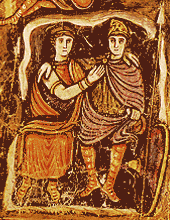 |
Virgil (Aeneas and Dido) | Beginning with adolescence, the story of Aeneas and Dido represents the earliest phase of Augustine's search for meaning. He later judges it as misplaced -- an unhealthy desire for lust and suffering. It also represents the prodigality of his early life. | 1.12-14 |
 |
Cicero | Cicero's Hortensius creates in Augustine a desire for the wisdom present in all sects and a longing for rhetorical effectiveness. | 3.4 |
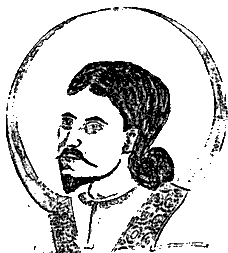 |
Manicheans (Faustus) |
The dualist belief system of Mani argued, among other things, that God is a physical sphere of light, that the Elect (the spiritual elite) are served by the Hearers, that evil is a separate will than that of the person, that the Old Testament was not inspired by God, and that only Jesus' image was crucified. Augustine later comes to reject all of this, especially after the orator Faustus is unable to answer his questions. | 4.15, 5.3-7, 5.10, 7.2 |
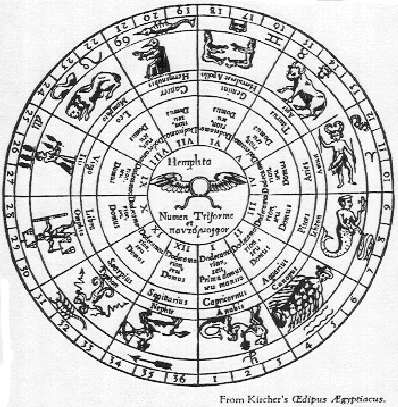 |
Astrology | Perhaps influenced by Manichean beliefs, Augustine is influenced by
astrology for awhile. Examples such as the lives of twins help convince him of the
mistaken nature of this. He also comes to realize that such beliefs excuse people
from the responsibility of their actions.
|
4.3, 7.5-6 |
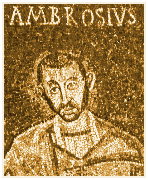 |
Catholic Catechumen (Ambrose) |
At first, Augustine only listens to Bishop Ambrose as a model of rhetoric, but soon he begins to listen to the content. He finds that Christianity is intellectually tenable after all. Ambrose's stress on the "spiritual" interpretation of Scripture is especially helpful. He attends Ambrose' church as a catechumen while he looks into other sources of truth. | 6.3-5 |
 |
Neoplatonism | During the same time, he begins to more closely study the beliefs of neoplatonists like Plotinus. Augustine continued to be deeply influenced by such ideas as the doctrine of the logos and the ladder of ascent, that lower truth and beauty leads to higher truth and beauty, finally leading to God the ultimate source of these. | 7.9-10, 7.17 |
 |
Paul & John | Yet he finds in the New Testament, an application of the logos, specially in the person and work of Jesus Christ. Christ offers a level of redemption that the neoplatonics can not. He finds the New Testament also has more devotional power. | 7.21ff. |
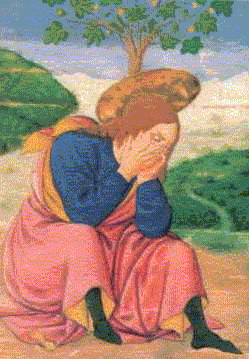 |
Conversion | His conversion comes to a head as he hears the stories of other conversions like that of Victorinus and those won over by the life of Anthony. He finally heeds the message "Take up and read." There he learns: "Put on the Lord Jesus Christ and make no provision for the flesh in its lusts." | 8 |